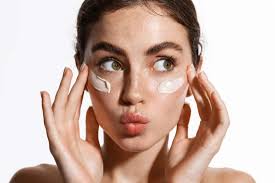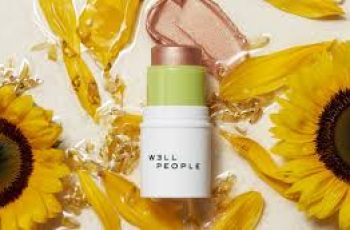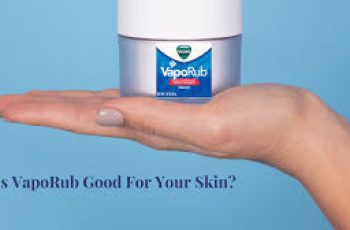
Best Oil-Free Moisturizers: A Dermatologist’s Guide for Every Skin Type
The phrase “oil free” in skincare is more confusing than it needs to be. There’s no official standard for what “oil free” means in cosmetics or moisturizers.
As a dermatologist, I’ll explain my definition. I’ll also recommend the best oil-free moisturizers for all 16 Baumann Skin Types.
People with oily skin often ask if they should avoid oils completely in moisturizers. Is skipping oils really necessary? Can dry skin types benefit from oil-free creams?
Are gel moisturizers always better for oily skin? This blog breaks it down for you.
Start by Knowing Your Skin Type
Before buying any moisturizer, I highly recommend taking the free Baumann Skin Type Quiz. Many think they know their skin type, but most people guess wrong.
Using the wrong products can damage your skin’s health for months.
Once you know your skin type, products that are safe for you show up with your skin type icon on our website. This helps you choose better and avoid harmful ingredients.
Take the quiz with the button below and get your personalized skincare plan!
What Is an Oil-Free Moisturizer?
Literally, “oil free” means no oils in the formula. But many products labeled “oil free” contain oil derivatives or esters from plants or petroleum, which aren’t technically oils but feel oily.
The term also describes a product’s feel — a lightweight, non-greasy texture. It does not guarantee the product won’t clog pores. “Oil free” means it feels light on skin, not that it’s always noncomedogenic.
Oil-Free Moisturizers for Oily Skin
Oily skin types often struggle with acne caused by excess oils and clogged pores. Saturated fatty acids from oils can worsen this. For these skin types, oil-free moisturizers are usually better.
Here are some excellent options:
CeraVe PM Facial Moisturizing Lotion: Lightweight, oil free, and noncomedogenic. Perfect for night use.
Cetaphil Oil Control Moisturizer SPF 30: Contains micropearl tech to mattify skin and control shine while protecting against UV damage.
Neutrogena Oil Free Moisture: Popular but contains petrolatum and soybean sterols which might feel greasy to some. Still noncomedogenic.
La Roche-Posay Effaclar Mat Oil-Free Mattifying Moisturizer: Refines skin texture with micro-exfoliating LHA, shrinks pores, and purifies acne-prone skin without dryness. Loved by my acne patients.
Essopi Triple Antioxidant Serum: Great for sensitive skin needing antioxidants. Oil free, noncomedogenic, contains peptides and antioxidants but no true jojoba oil.
EltaMD AM Restore: Oil free with ascorbyl palmitate (mildly comedogenic but tested safe for acne-prone skin). A solid morning moisturizer.
EltaMD PM Restore: Also oil free and noncomedogenic but heavier than the AM version. Better for normal/oily or combination/oily skin, not dry skin.
Oil-Free Moisturizers for Dry Skin
Dry skin needs moisture, but many oils can irritate or clog pores even in dry skin. Some dry skin types are allergic or sensitive to oils.
For dry skin needing oil-free moisturizers, I recommend:
A dermatologist-developed formula containing niacinamide, which boosts collagen production, repairs skin damage, and evens skin tone. This is perfect for dry, acne-prone skin with dark spots.
Anti-Aging Oil-Free Moisturizers
Anti-aging products promote collagen, exfoliate dead skin, fight free radicals, and smooth texture. Many contain oils, which some people are sensitive to.
If you want oil-free anti-aging moisturizers, try these:
SkinMedica TNS Advanced+ Serum: Oil-free and noncomedogenic, packed with growth factors and peptides.
A gentle retinol for beginners that’s oil free. Use it in a complete custom routine for best results.
Oil-Free Moisturizers for Acne-Prone Skin
Acne-prone skin is highly sensitive to oils, which clog pores and worsen breakouts. If you need a moisturizer that won’t clog pores:
La Roche-Posay Effaclar Mat Moisturizer is my top pick for oily teens with acne. It uses dimethicone to hide oil and silica to absorb excess sebum. Noncomedogenic and mattifying.
Oil-Free Moisturizers with SPF
Protecting your skin from UV damage is crucial daily. Many sunscreen formulas feel greasy or clog pores.
Try:
Murad Oil-Free Sunscreen designed specifically for acne-prone skin. It offers protection without heaviness or shine.
Oil-Free Body Moisturizers
Oil-free body lotions hydrate without grease. Look for products with humectants like glycerin and hyaluronic acid that lock water onto the skin’s surface.
Why Choose an Oil-Free Moisturizer?
Ask yourself: Why do I want an oil-free moisturizer?
Main reasons include:
Non-greasy feel: Many dislike the heaviness of oily creams. Oil-free lotions feel light and fresh.
Control excess shine: For oily skin, oil-free products hydrate while managing shine and slip. Makeup and sunscreen apply better on matte skin.
Reduce clogged pores: High-oil moisturizers can clog pores, causing blackheads and breakouts. Oil-free, noncomedogenic products lower this risk.
Better compliance: People enjoy using light moisturizers daily more than greasy ones, leading to consistent skin care habits and better results.
In summary, oil-free moisturizers suit those who want a lightweight, easily absorbed product. They also benefit oily and acne-prone skin types by reducing oil and breakouts.
Benefits of Oil-Free Moisturizers
Oil Control: Less shine and grease means longer-lasting makeup and fewer powder touch-ups.
Smooth Makeup Application: Creamy, oily moisturizers can cause patchy foundation. Oil-free formulas provide a smooth base.
Non-Greasy Afterfeel: Absorbs quickly without slippery residue.
Lightweight on Skin: Especially preferred by men and oily skin types.
What Does Oil-Free Really Mean?
No official standard defines “oil free” on product labels. Here’s my take as a dermatologist:
Literal oil free means no oil ingredients at all. But many “oil free” products have oil derivatives or esters.
“Oil free” often means the product feels light, not greasy. It doesn’t guarantee it won’t clog pores.
Not all oils cause breakouts; some ingredients like beeswax aren’t oils but can clog pores.
Common Myths About Oil-Free Skincare
Oil-free doesn’t always mean noncomedogenic.
Some non-oil ingredients can feel greasy, like fatty alcohols.
Beeswax is not an oil but can clog pores.
Shopping for oil-free products can be confusing; knowing your skin type helps.
Oily Ingredients That Aren’t True Oils
Some oily-feeling ingredients are derived from oils but aren’t technically oils. They can make “oil-free” products feel heavy.
Examples by source:
Palm Oil derivatives: Palm Kernel Alcohol, Cetyl Palmitate, Squalene.
Soybean Oil derivatives: Soybean Sterols, Hydrogenated Soybean Oil.
Vegetable Oil derivatives: Cetyl Stearate, Glyceryl Stearate.
Castor Oil derivatives: Hydrogenated Castor Oil, PEG Castor Oils.
Mineral Oil derivatives: Petrolatum, Paraffin, Ceresin.
Olive Oil derivatives: Squalane, Olive Fruit Oil.
These ingredients may make products feel greasy even if labeled oil-free.
Final Thoughts
Choosing the right moisturizer means understanding your skin and your goals. Oil-free doesn’t always mean the same thing on every product.
The right moisturizer supports your skin barriers without adding unwanted oils.
Take the Baumann Skin Type Quiz to discover what works best for you. Then, explore oil-free moisturizers designed for your skin type and concerns.


